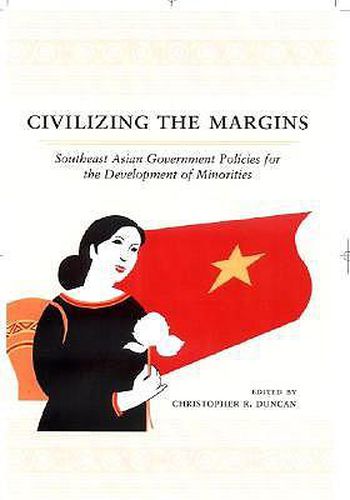Readings Newsletter
Become a Readings Member to make your shopping experience even easier.
Sign in or sign up for free!
You’re not far away from qualifying for FREE standard shipping within Australia
You’ve qualified for FREE standard shipping within Australia
The cart is loading…






Southeast Asian nations have devised a range of development programs that strive to incorporate minority ethnic groups into the nation-state. The authors of Civilizing the Margins discuss the programs, policies, and laws that affect ethnic minorities in eight countries: Burma, Cambodia, Indonesia, Laos, Malaysia, the Philippines, Thailand, and Viet Nam. Once targeted for intervention, people such as the Orang Asli of Malaysia and the hill tribes of Thailand often become the subject of programs aimed at radically changing their lifestyles, which the government views as backward or primitive. Several chapters highlight the tragic consequences of forced resettlement, a common result of these programs. Others question the motives behind pushing minorities into development schemes. Rather than simply describing the effects of the programs and the experiences of participants, the contributors to this book attempt to understand the ideologies and strategies that led to the implementation of these programs.
$9.00 standard shipping within Australia
FREE standard shipping within Australia for orders over $100.00
Express & International shipping calculated at checkout
Southeast Asian nations have devised a range of development programs that strive to incorporate minority ethnic groups into the nation-state. The authors of Civilizing the Margins discuss the programs, policies, and laws that affect ethnic minorities in eight countries: Burma, Cambodia, Indonesia, Laos, Malaysia, the Philippines, Thailand, and Viet Nam. Once targeted for intervention, people such as the Orang Asli of Malaysia and the hill tribes of Thailand often become the subject of programs aimed at radically changing their lifestyles, which the government views as backward or primitive. Several chapters highlight the tragic consequences of forced resettlement, a common result of these programs. Others question the motives behind pushing minorities into development schemes. Rather than simply describing the effects of the programs and the experiences of participants, the contributors to this book attempt to understand the ideologies and strategies that led to the implementation of these programs.